How Scotland’s Ecosystem is Powering the Next Wave of Digital Growth
The Sunday Times Future of Digital Tech Summit in Aberdeen went several steps beyond a general discussion, laying groundwork for sharper conversations, grounded optimism, and palpable energy. Across a day of founder stories, investor insights, and deep dives into AI and industrial innovation, one theme stood out clearly: Scotland’s digital economy is shifting from potential to performance.
It was apparent from the outset that this was not a discussion about distant potential but about what is already happening in Scotland’s regions. Jennifer Craw, Chief Executive of Opportunity North East (ONE), opened the day by highlighting how the North East is on track to double its digital tech base by 2030. The region’s strengths in energy, agri-tech, and health technology are forming the backbone of a new growth story. Professor Andy Pardoe followed with an outlook that framed the entire event: the UK stands on the edge of an AI boom that will reward governance and purposeful adoption over hype.
The day’s conversations circled a single question: what conditions will allow Scotland’s founders to compete and scale globally?
Unlocking Regional Digital Tech Growth: The Power of Ecosystems
When Stephen Coleman OBE (CEO and Co-founder of CodeBase), Jennifer Craw MBE (Chief Executive of ONE), and Alisdair Gunn (Director, Glasgow City Innovation District) offered one of the day’s most grounded examinations of how ecosystems evolve. It moved beyond optimism to the mechanics of scaling — what founders truly need to build competitive businesses.
Stephen Coleman reflected on the tension between ambition and access. Scotland, he said, has no shortage of entrepreneurial drive, but scaling still requires the right mix of capital, connections, and confidence. That last one, confidence, sparked an important point about salesmanship. Too often, early-stage companies focus on technology first and sales later. The panel emphasised that commercial skill is as important as innovation itself.
Jennifer Craw framed that skill within a regional context. Aberdeen’s tech base was born from a culture of industrial precision, a mindset now translating into digital innovation. For her, the city’s strength lies in founders who know how to solve complex, real-world problems. The challenge ahead is helping them raise their gaze: to think beyond local clients and see global opportunities.
The discussion also turned to capital. Alisdair Gunn pointed out that regional ecosystems often think of investment as a zero-sum game, when in reality, the key is connectivity. Glasgow’s experience with open innovation, bringing corporates, universities, and investors into shared clusters, shows how collaboration unlocks private capital faster than competition does.
Stephen Coleman drew a crucial comparison to Silicon Valley. The Valley, he argued, was not built by one city or one programme, but by a culture that connects entrepreneurs, investors, and institutions in a constant feedback loop. Replicating that model is not about imitation but about mindset. He emphasised that in the UK we need to think like an open network where knowledge, people, and opportunities move freely.
That philosophy already shapes CodeBase’s work through Techscaler and its international programmes, of which Silicon Valley is a key component. The current cohort, the fourth of its kind, is visiting Silicon Valley to engage with founders, investors, and mentors who have scaled on the world stage. These exchanges are designed to build confidence and insight founders can bring back into their own regions.
The panel also addressed that regional clusters like Aberdeen and Glasgow should not try to replicate one another but to specialise, building deep expertise that attracts global investment. Silicon Valley’s example of government acting as an enabler rather than a controller was brought up in relation as well, drawing a parallel with how Scotland can use policy to remove friction for founders rather than add bureaucracy.
The insight was practical and consistent: government sets the environment, but founders drive the momentum. Scaling up will depend on sustained investment in skills, flexible regulation, and a mindset that sees Scotland not as a small market but as a connected platform for global reach.
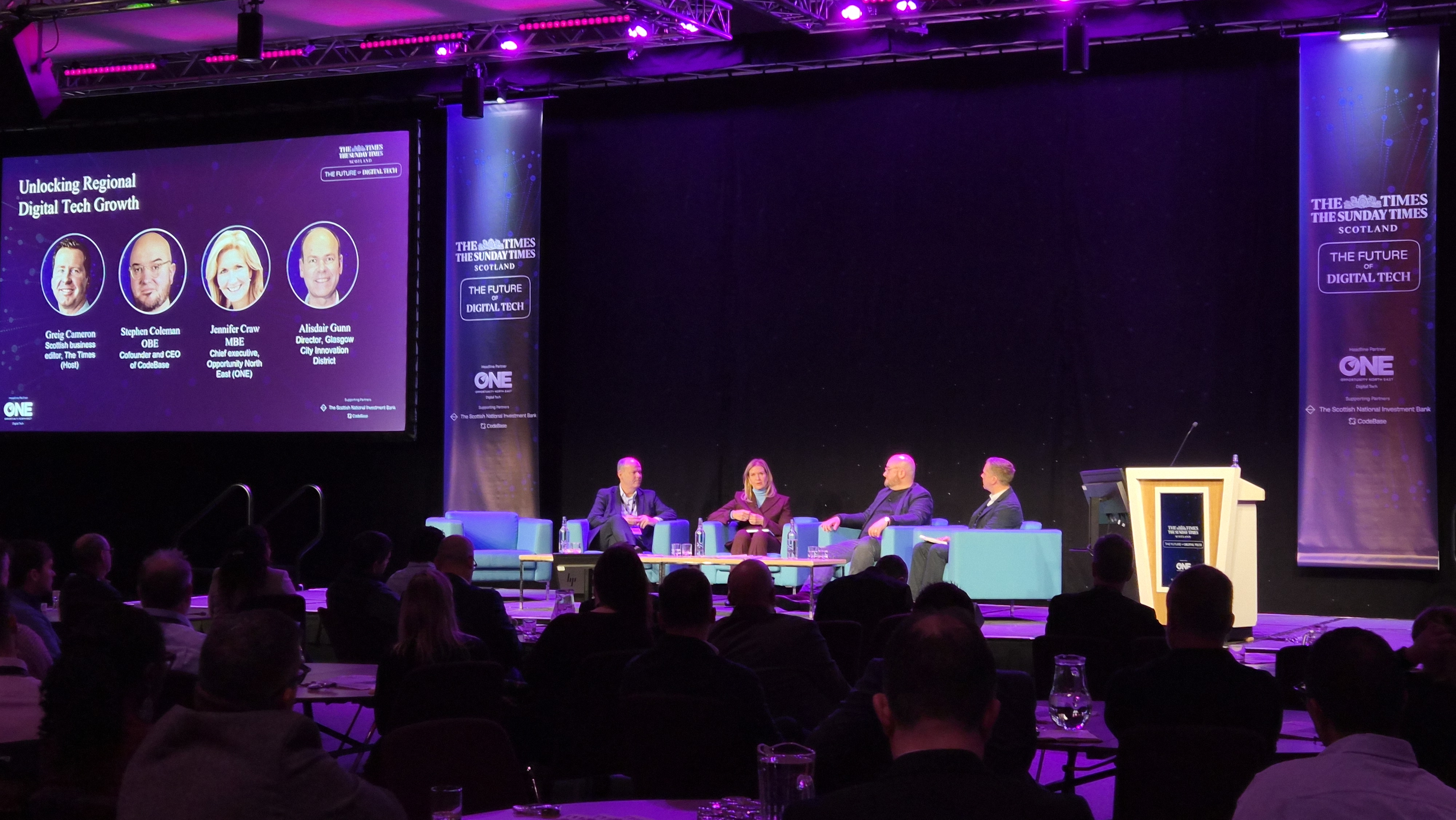
Founders and the Path to Scale
The day’s most candid reflections came from founders themselves, each revealing a different facet of the startup journey/, from first idea to international traction.
Chris Herd, founder and CEO of Firstbase, spoke about building distributed teams long before it became mainstream. His early struggle to raise capital at home and eventual success overseas underscored a cultural gap around risk. Scotland, he noted, has talent and creativity in abundance but must pair them with bigger ambition and faster decision-making. For new founders, his advice was simple: validate globally from the outset and treat investor rejections as data, not deterrence.
Ross McNairn, CEO of Wordsmith AI and a Techscaler member, represented a different challenge: earning trust in high-stakes sectors. His company develops AI systems for in-house legal teams where precision and compliance are non-negotiable. McNairn described how building for regulated environments forces a clarity of process that many startups overlook. Success depends on designing technology that professionals can trust with their reputation, not just their workflow.
Jodie Sinclair, founder and CEO of TheoHealth, completed the founder arc with a story rooted in resilience. After a sports injury ended her athletic career, she transformed personal frustration into a product that captures real-time biomechanical data for smarter training. Her experience illustrated the long road from prototype to product: years of unpaid work, constant iteration, and the importance of a support network that keeps founders focused when progress feels slow.
Across these journeys, several lessons were repeated. The ability to sell is a founder’s superpower. Capital follows traction, not ideas. Credibility grows through transparency, especially in sectors where trust defines adoption. And resilience, mental as much as operational, is what turns early potential into sustainable scale.
Commercialising Innovation and Attracting Investment
Yan Zhang, investor and former COO of PolyAI, provided the connective tissue between innovation and execution. Having guided AI products from pilot to enterprise deployment, he warned that most technologies fail not in code but in adoption. The antidote is understanding enterprise priorities. Founders should position their products as solutions to measurable pain points, cutting downtime, raising compliance rates, and reducing churn, rather than abstract efficiency gains.
Zhang also stressed partnership discipline. Strategic collaborations, when structured around shared outcomes, can accelerate growth without surrendering control. His “pyramid of priorities” framework placed defensibility, value capture, and culture alignment above short-term revenue, reminding founders that sustainable scale depends on both innovation and integrity.
The investor panel that followed added texture to this perspective. From venture studios to mission-driven funds, investors were united by a preference for companies solving systemic problems rather than chasing trends. Industrial AI, health tech, and energy transition technologies stood out as key opportunities. Several speakers spoke about looking for “painkillers, not vitamins”, solutions customers cannot operate without.
They also acknowledged Scotland’s persistent scale-up gap: strong early innovation, limited growth capital. The call was to close that gap through patient investment, international exposure, and ecosystems that encourage calculated risk.
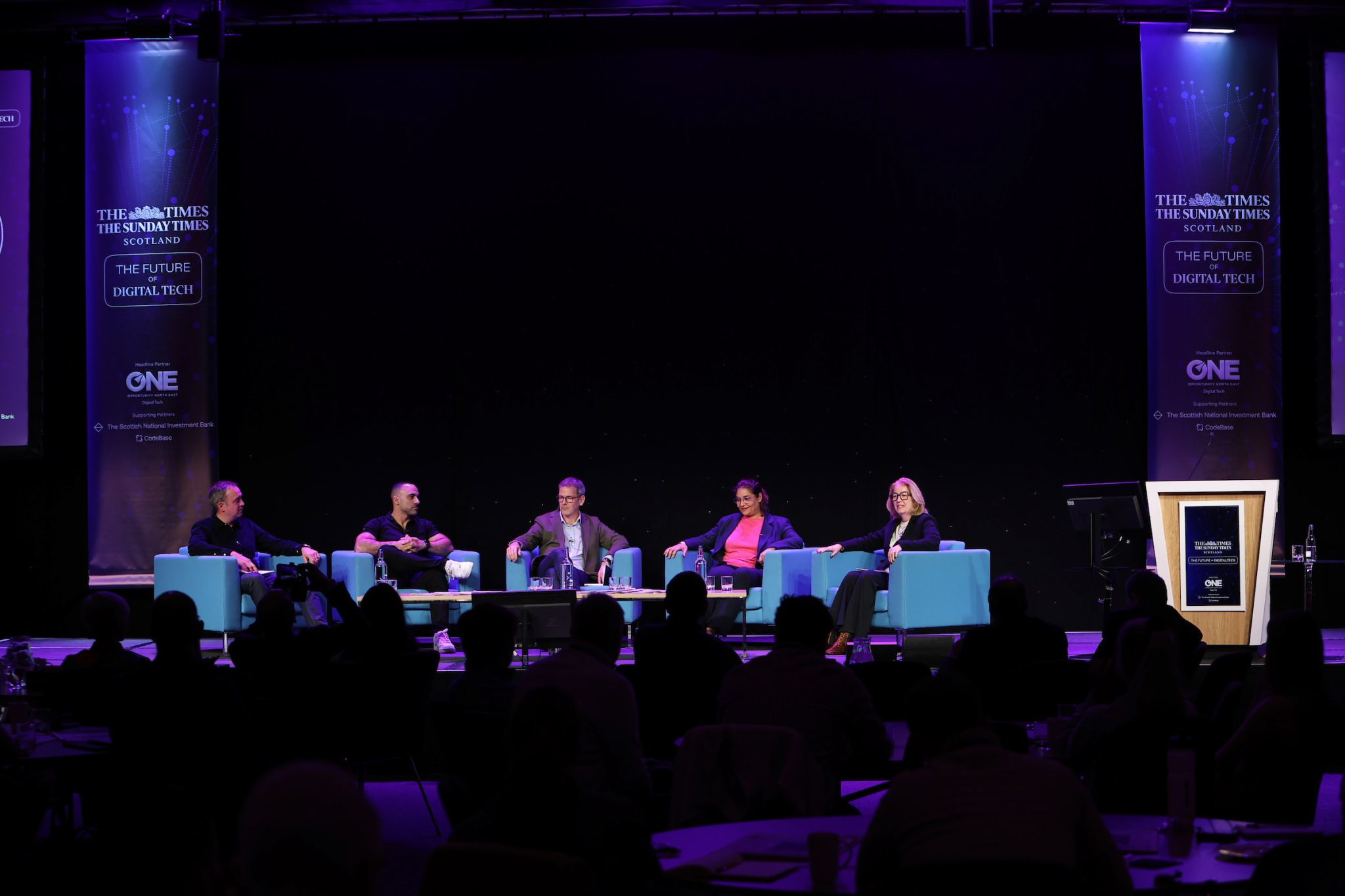
EnergyTech and the Power of Legacy
No discussion in Aberdeen could ignore the city’s industrial roots. The EnergyTech panel, consisting of Edward Keelan (Partner, Octopus Ventures), Stuart McLeod (Managing Partner, Ventex Studio), Ana Wolsztajn (Digital & Frontier Tech Investment Lead, Innovate UK Business Connect), and Ailsa Young (Investment Director at the Scottish National Investment Bank), demonstrated how decades of offshore expertise are being re-applied to global challenges in decommissioning, automation, and safety.
Founders described how data analytics and AI now drive predictive maintenance, reducing cost and environmental impact. What stood out was their shared approach: exporting discipline, not dependency. The rigorous safety culture honed in oil and gas is becoming Scotland’s differentiator in sectors from construction to logistics.
The conversation also touched on policy realism. While renewables dominate headlines, many projects still rely on oil-and-gas-derived knowledge and infrastructure. The path to a greener economy, speakers argued, is transitional, not binary. Investing in cross-sector innovation allows Aberdeen to lead both the energy transformation and the broader industrial digital revolution.
Their insights echoed the earlier ecosystem panel: regional strength lies in applying local expertise to global markets. By translating engineering precision into software intelligence, EnergyTech companies are redefining what it means to build from heritage.
Shaping the Future: From Collaboration to Competitiveness
The final session brought together Ana Stewart, Chief Entrepreneurial Adviser to the Scottish Government, and Antonia Jenkinson, Chief Finance & Operating Officer of the Advanced Research and Invention Agency (ARIA), to examine how policy can keep pace with innovation.
Ana reflected on Scotland’s progress as one of Europe’s fastest-growing startup nations but cautioned that the next leap requires a bolder appetite for risk. Government, she argued, should take the earliest risks so private investors can step in later with confidence. Her ambition is clear: for Scotland to evolve from a startup nation into a true scale-up nation.
Antonia described ARIA’s role as a catalyst for that change. With a mandate to fund high-risk, high-reward research, ARIA operates more like a venture studio than a traditional agency. Its goal is to move fast, back talent, and learn from failure—principles that mirror the culture successful founders already practice.
Together, their perspectives reinforced the summit’s central message: the digital industrial future will be shaped by alignment between founders who build, investors who believe, and public institutions that enable.
Building the Conditions for Enduring Growth
By the end of the day, one thing was certain. Scotland’s tech momentum no longer needs to be proven. It needs to be sustained. The summit showed how far the ecosystem has come, from regional clusters finding common purpose to founders building trusted, export-ready technology.
For CodeBase, this is the mission in action: connecting founders to opportunity, strengthening networks across cities and sectors, and lowering barriers to growth. Through Techscaler and its international programmes, that mission is already expanding beyond borders, giving Scottish founders the tools and perspectives to compete anywhere.
The next decade will belong to those who combine innovation with openness, ambition with accountability. Scotland has the talent, the networks, and the will. What it is building now is confidence: the confidence to scale, to collaborate, and to lead.


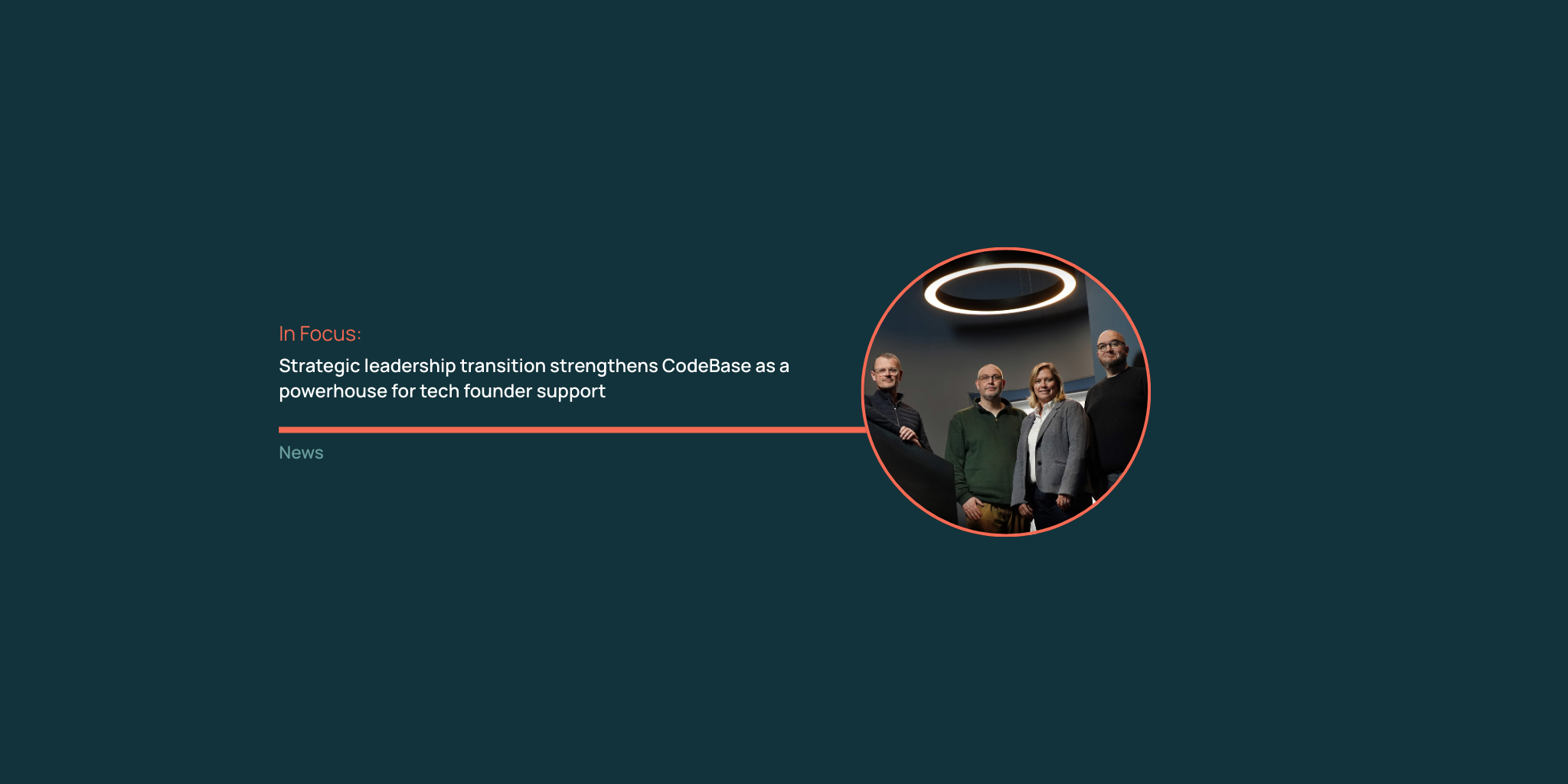

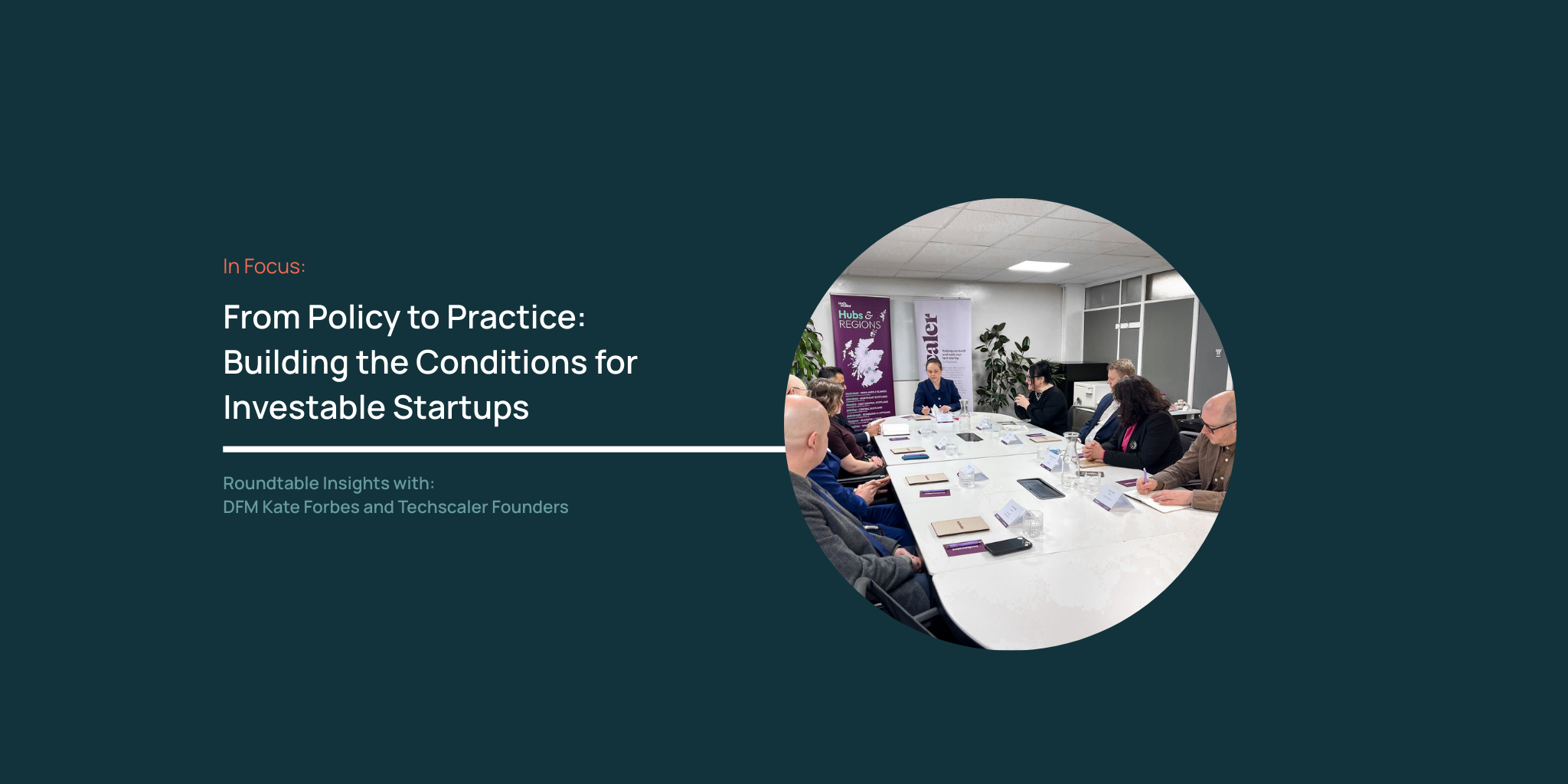
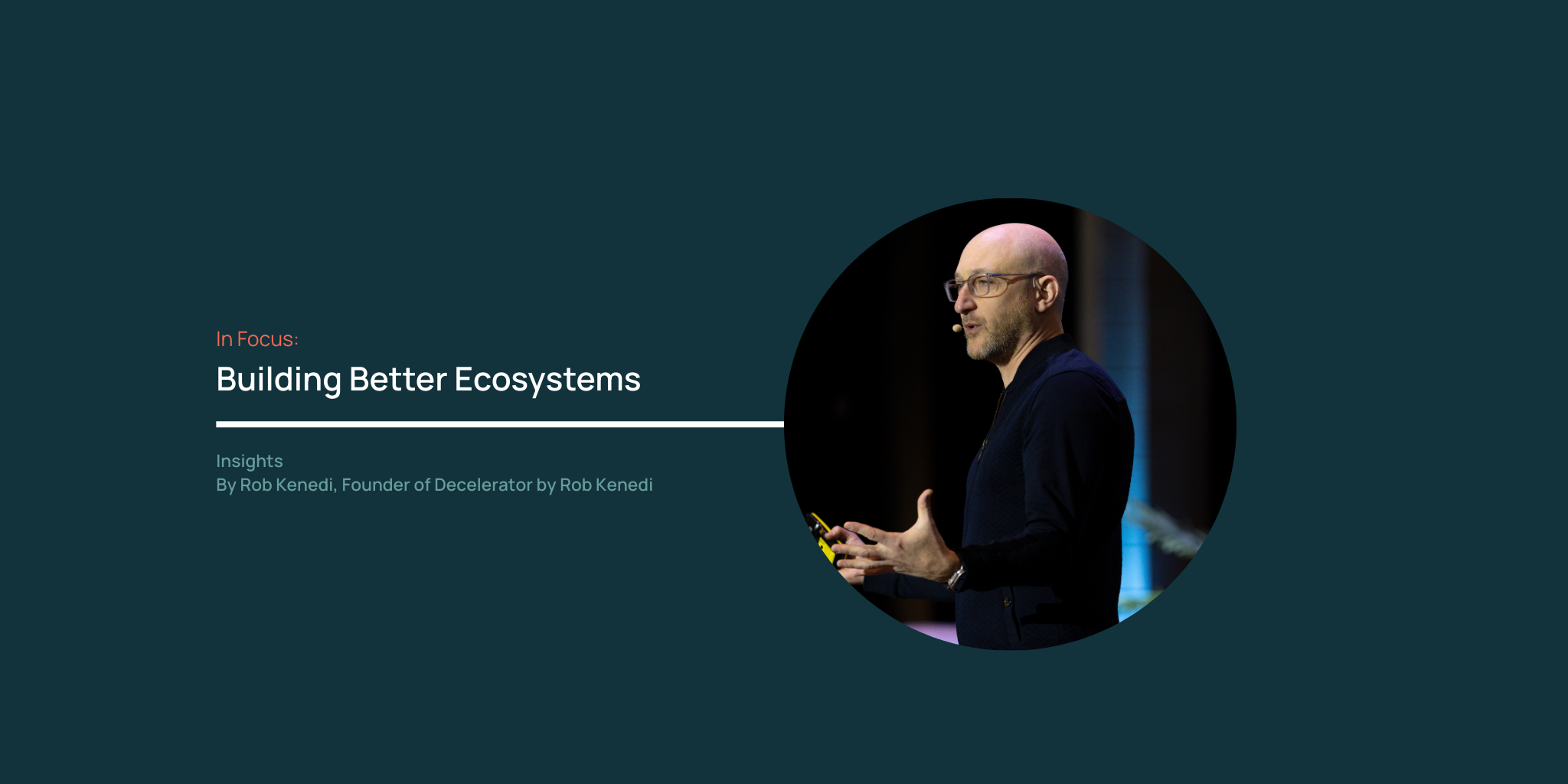
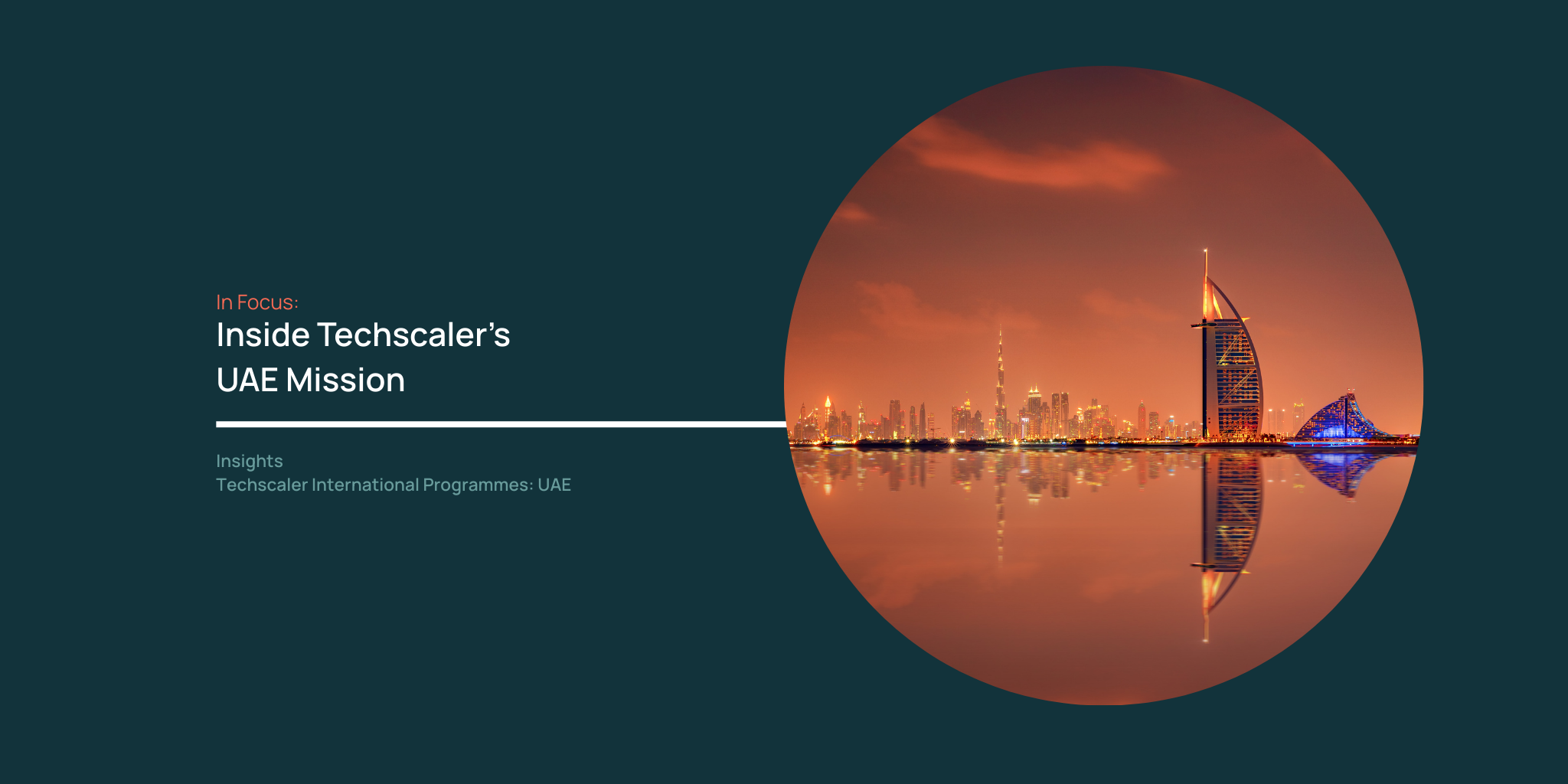

.svg)


